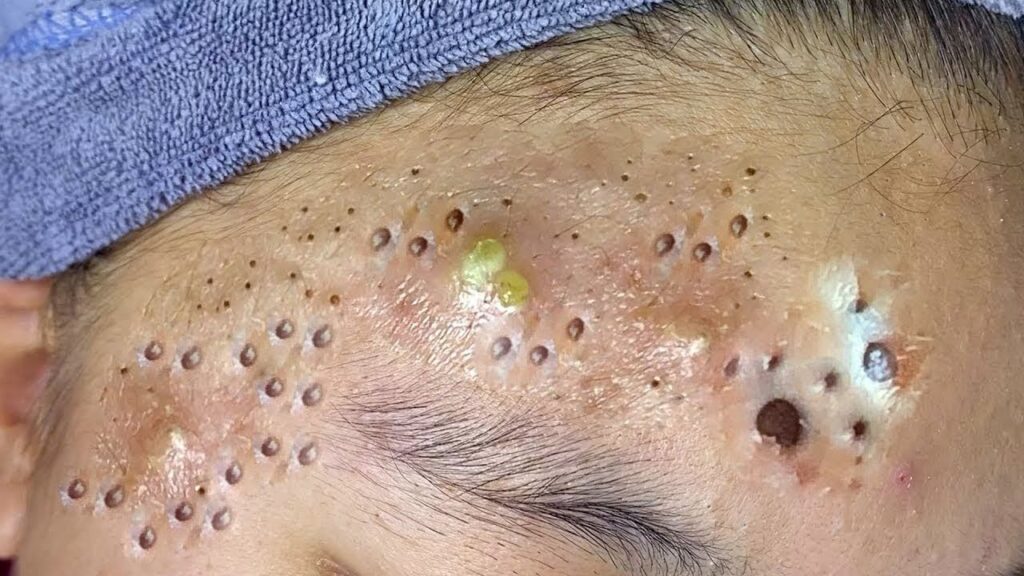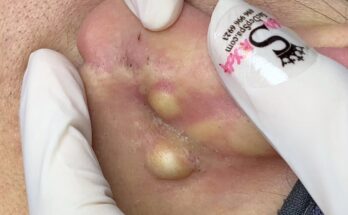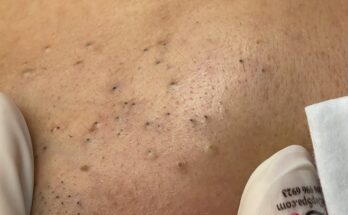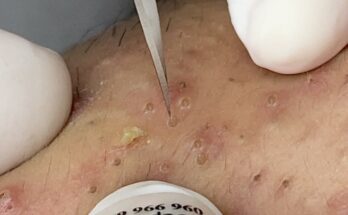
When we talk about acne, we often use a single term to describe a variety of blemishes. But understanding the difference between whiteheads, blackheads, and pimples is key to treating them effectively.
How Each Type Forms 🔬
- Whiteheads (Closed Comedones): These are a type of non-inflammatory acne that forms when a pore becomes clogged with excess oil (sebum) and dead skin cells. The pore’s opening remains closed, trapping the contents beneath the surface and creating a small, white or flesh-colored bump.
- Blackheads (Open Comedones): Like whiteheads, blackheads are caused by clogged pores. However, the key difference is that the pore is open to the air. The trapped sebum and dead skin cells oxidize upon exposure to oxygen, turning a dark, almost black color. This isn’t dirt, but a chemical reaction.
- Pimples (Papules & Pustules): Pimples are a form of inflammatory acne. They begin as a clogged pore, but bacteria (specifically P. acnes) infect the follicle, leading to inflammation. A papule is a small, red, inflamed bump, while a pustule is a papule with a visible white or yellowish pus-filled tip.
Best Treatments for Each
- Whiteheads and Blackheads: Since these are non-inflammatory, they respond well to ingredients that exfoliate and clear pores. Salicylic acid is a top choice, as it’s oil-soluble and can penetrate deep into the pore. Retinoids are also highly effective at increasing cell turnover and preventing clogs.
- Pimples: For inflamed acne, you need ingredients that target bacteria and reduce inflammation. Benzoyl peroxide is an excellent option as it kills acne-causing bacteria. Topical retinoids can also help by reducing inflammation and preventing new pimples from forming.
When to See a Dermatologist 🩺
If your acne is severe, persistent, or causing pain, it’s time to see a professional. You should also consult a dermatologist if:
- Over-the-counter treatments have not improved your skin after several weeks.
- Your acne is causing deep, painful cysts or nodules.
- You are concerned about acne scarring. A dermatologist can prescribe stronger medications, such as oral antibiotics or oral retinoids like isotretinoin, and recommend professional treatments like chemical peels or laser therapy to get your acne under control and prevent long-term damage.


